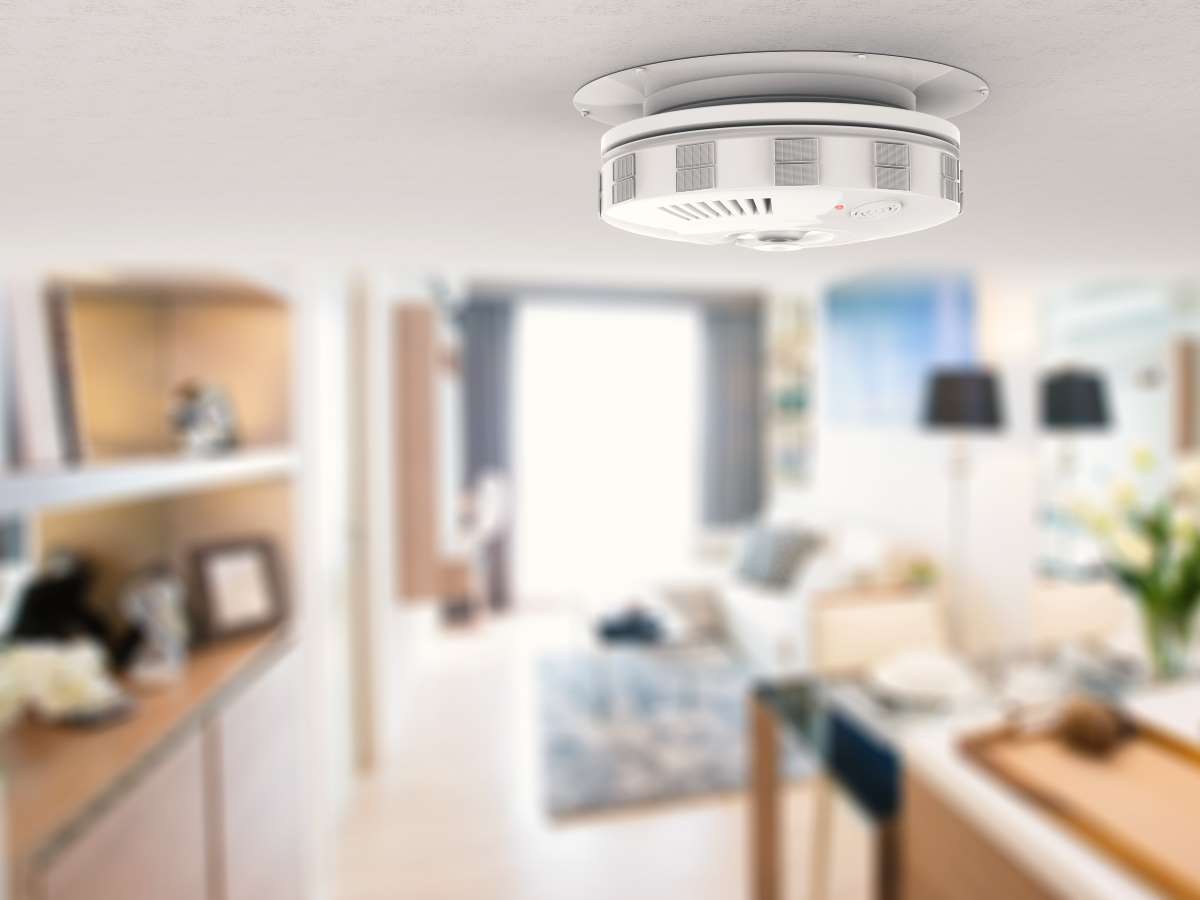
Smoke alarms are one of the tools that are crucial for the safety of every home. According to the United States' National Fire Protection Association, nearly 60% of fire deaths occur in homes with no smoke detectors. Yet, as important as these devices are, using an expired one is just as risky as not having one at all.
According to the US Fire Administration, most fire alarms' life span is between 8 and 10 years. After this period, you should consider replacing the device because the unit becomes less effective. In fact, the NFPA requires all residential smoke alarms to be replaced every 10 years. However, besides age, other factors can necessitate a change of your smoke detector. This article will consider how you can check if your smoke alarm has exhausted its lifespan. You will also see the different ways you can use your smoke alarm properly so it can last its life span.
First, let's be sure you understand what a smoke alarm is.
What is a Smoke Alarm, and How Does it Differ from a Smoke Detector?
Most people use these terms interchangeably when it comes to securing homes from fire. But in a real sense, the two are different.
As the name suggests, a smoke detector is a device that can sense the presence of smoke in your house. On the other hand, the fire alarm is a device that gets the signal from the smoke detector and alerts people of the impending danger. Fire alarms usually give their alert using high pitch sounds and flash of warning light. That way, people with hearing disabilities can also get a warning. A smoke alarm does both, detects smoke, and alerts those nearby.
How Can You Tell if Your Smoke Alarm is Broken or Expired?
Nothing lasts forever, not even your perfect smoke alarm. At some point, you will have to decide to part with it and get a new one. In most cases, age plays a big role in making that decision. That's because, as the device ages, its smoke sensors tend to wear out. The problem here is, you might not even know the device is no longer functioning properly. That's because the electronic part would seem all okay while the sensor on the inside has stopped working.
Generally speaking, when you notice the following, it is time to change your smoke alarm:
- The device is already ten years old or more. The date of manufacture is usually written on the device and, in some cases, the expiration date as well. If all you have is the manufacture date, simply calculate ten years from the time and see if the device is not too old to be in use.
- Your smoke alarm suddenly trips off for no reason. That might be because dirt, smoke, humidity, steam, insects, or other contaminants have ruined the device's sensors.
- The expiration and manufacture date no longer appear on the device. That is probably because the device has passed its expiration period. When you notice any of these issues, it is time to change the smoke alarm.
How Do You Get the Best Out of Your Smoke Detectors?
The age of your smoke alarm is not the only factor that can make it stop working. Sometimes, improper use of the device can also make it malfunction even before it clocks its 10-year mark. Here are some tips to help you avoid that and to keep your smoke alarm in the best condition so it can last long:
- Ensure that you install smoke alarms in every bedroom of your house. Also, remember to install them outside of the bedrooms.
- Ideally, smoke alarms should be on every level of your home.
- Avoid installing your smoke alarms near bathrooms, ducts, windows, or stoves. That is so that the steam, drafts, or cooking smoke coming from these places do not set off a false alarm.
- As a rule, ensure to test your smoke alarms once a month. Do this by pressing the "test" button on the device.
- You should replace the batteries in your smoke alarm semi-annually. If you live in an area that changes your clocks for daylight savings time, that is a good time to do it.
- If your smoke alarm gives you a low battery signal (that is, chirping sounds), you should replace the batteries as soon as you can.
- Dust and cobwebs can impair the functionality of your smoke alarm. Therefore, you need to clean the device and its surroundings once in a while. To do this, you can use a duster or a vacuum extension to suck up the excess dust and cobwebs lying around the device.
- Make sure you note the expiration date of your smoke alarm. More importantly, ensure to replace the device when it is time. As a tip, you might set a calendar reminder ahead of time so you do not forget the date.
Need Help with Smoke Detectors?
Not sure if your smoke detectors are expired or you have the best detectors to protect your home or business? Give the experts at Koorsen Fire and Security a call today to learn how they can help protect your property against fire.


